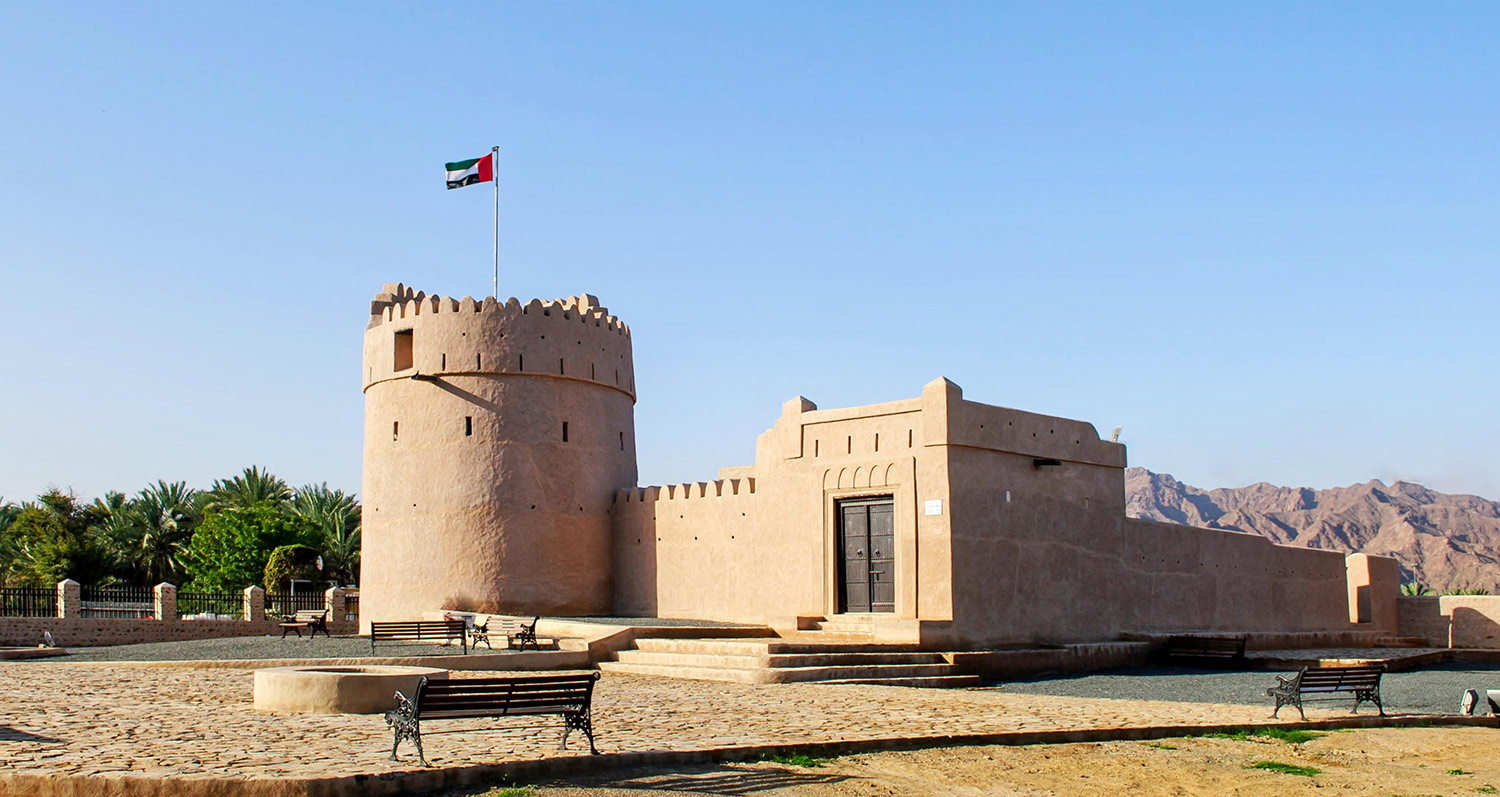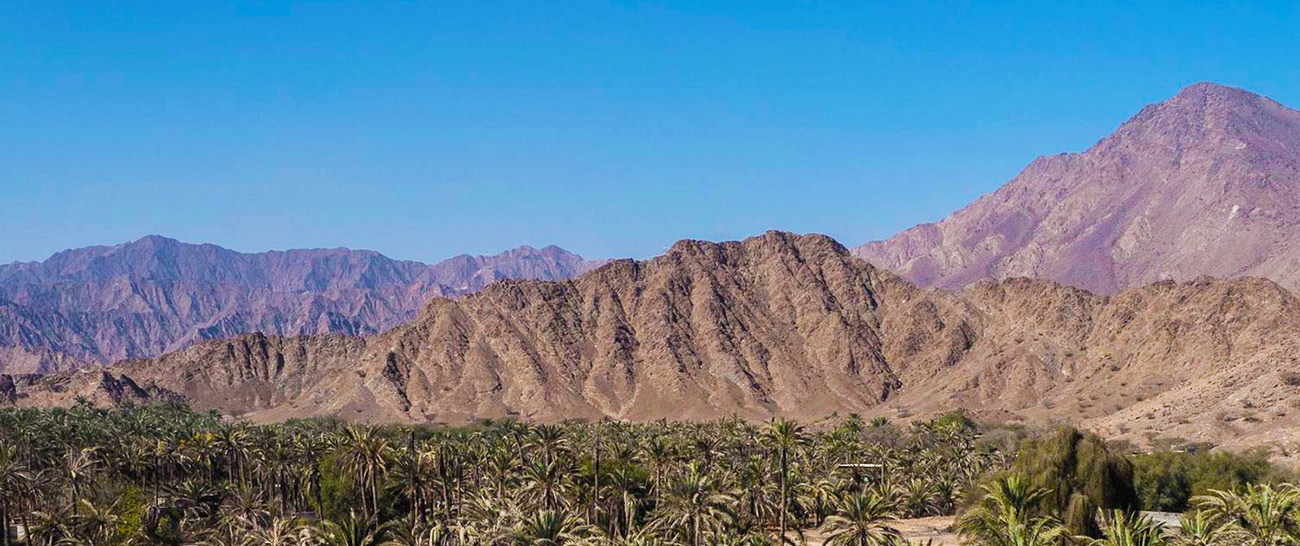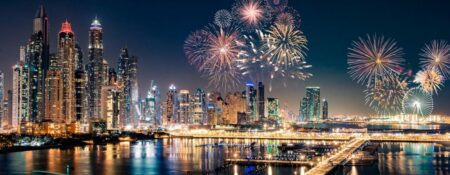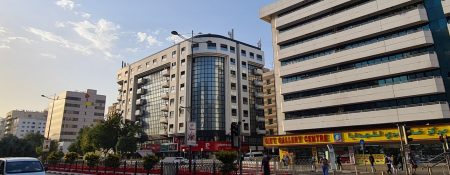Known for its pristine natural environment, famous brand of spring water and historical significance, Masafi has become a symbol of the UAE’s connection to its natural resources and traditional heritage. Despite its size, Masafi plays a large role in the region’s economy and cultural identity.
As mentioned earlier, town of Masafi shares its name with its most famous product (and one of the most famous local brands of UAE): Masafi mineral water. Established in 1976, the Masafi Water Company is the UAE’s first and most iconic bottled water brand, drawing from the pure springs of Hajar Mountains. The town’s location, blessed with underground aquifers, provides naturally filtered water, cherished among citizens and residents of UAE and beyond for its clean taste and high mineral content. The brand has since expanded to include juices and other beverages, but the name “Masafi” remains a household name throughout the whole Middle East region.
Masafi’s unique geography is defined by its location between the coastal plains and the rugged Hajar Mountains. This landscape offers a cooler climate compared to the rest of the UAE, especially during the winter months, making it a popular destination for tourists seeking a break from the scorching desert heat. The mountain range provides a breathtaking backdrop, with rocky peaks and valleys that have been carved over millennia.

The town of Masafi has deep historical roots, and its significance goes back to ancient times. Archeological evidence suggests that the area was inhabited by various civilizations due to its strategic location along trade routes connecting the Arabian Peninsula with Persia and the Indian subcontinent. The region has long been a resting place for travelers and traders, who would stop in Masafi for its fresh water and rest before continuing their journeys.
One of the town’s key attractions is the Masafi Friday Market (Souq Al Juma’a), located along the road leading into the town. Despite its name, the market is open daily and offers a unique cultural experience where visitors can purchase traditional handmade goods, pottery, rugs, fruits, and vegetables, as well as local specialties like dates and honey. The market is a reflection of Masafi’s traditional charm, connecting modern travelers with the rich heritage of the region.
In addition to its famous water, Masafi has a long-standing agricultural tradition. The fertile soil and abundant water sources have allowed farmers to grow crops such as citrus fruits, vegetables, and dates. Agriculture remains an important part of the local economy, alongside tourism and water production. The presence of small farms and palm groves give Masafi a rural charm, contrasting with other more urbanized areas of the UAE, like Dubai and Abu Dhabi.
For nature enthusiasts and hikers, Masafi offers several trekking routes through the Hajar Mountains. The area is ideal for exploring the rugged terrain, and visitors often find themselves mesmerized by the dramatic cliffs, valleys, and breathtaking natural beauty that surrounds the town. Masafi’s cooler temperatures make it a favorite destination for those looking to escape the heat and immerse themselves in nature.
Travelers can also rely on the best esim for international travel to stay connected effortlessly while exploring this picturesque region.
Masafi strikes a delicate balance between tradition and modernity. While it is home to a globally recognized water brand and serves as a key stop on the Dubai-Fujairah route, it still maintains its small-town appeal. Presence of modern infrastructure alongside traditional markets and agricultural practices gives visitors a glimpse of the UAE’s past while highlighting the country’s rapid development.
Masafi is more than just a town known for its water; it is a place of cultural significance, natural beauty, and historical importance. As the UAE continues to modernize, Masafi remains a symbol of the nation’s heritage and its close relationship with its natural environment. Visitors to this small town are reminded of the UAE’s rich history and the timeless importance of water in maintaining sustainability for both life and civilization in the Gulf Region.





The UAE’s rich history is rooted in trade and tied to Islam. Its unique location between Europe and the Far East became the crucial factor in it's growth into the world's largest trading hubs. Throughout the ages, these lands had attracted merchants from India and China, and were prized by Europeans, in particular the Portuguese, the Dutch and the British.
After the discovery of oil and the formation of the Emirates, the wise rulers began the rapid development of the country's economy, shaping it into what it is today. Though small in size, the UAE quickly became an important player in regional and international affairs.
Although it's growth and development, UAE heritage have not been forgotten - on the contrary, is still well-respected among the nationals. History and culture of local people can be felt in the legendary hospitality of local hotels, architecture of modern skyscrapers and openness and kindness in living among the multinational community.
Here you can read various articles about UAE heritage, history and culture, and better understand, why this country's development became such a success throughout the years.